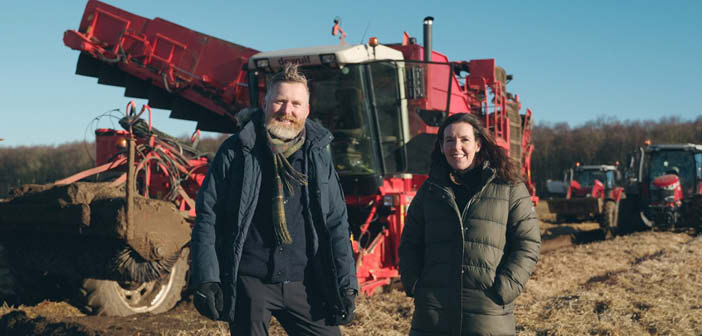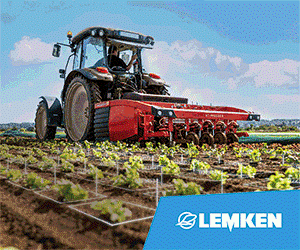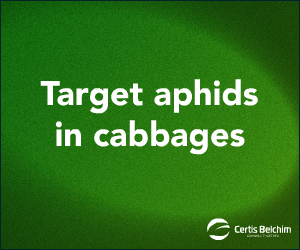Tesco has announced the launch of a ‘greener greens’ initiative, which will see the retailer working with five of its major fresh produce suppliers to identify ‘most planet and cost-effective alternatives to conventional fertiliser.’
According to the retailer, this means that 70,000 tonnes of field vegetables, including lettuce, carrots, and potatoes, will be grown using low-carbon alternatives this year, paving the way for large-scale low carbon fertiliser production in the UK, rather than having to rely on imports.
It is estimated that the work could reduce supply chain greenhouse gas (GHG) emissions by 20% in the first year alone, with no additional costs to growers. The project will evaluate eight different alternative fertilisers across 1,300 hectares in the 2023 growing season, with plans to scale up to a minimum of 4,000 hectares in 2024 across Tesco’s field veg suppliers (accounting for 200,000 tonnes of fresh produce).
If successful, Tesco plans to introduce the low carbon alternatives to other produce areas, including wheat and barley, as well as grassland for livestock production. Sarah Bradbury, Group Quality Director at Tesco, said, “Delivering more affordable, sustainable food means finding innovative, new ways to grow basket staples like potatoes, salad vegetables and carrots. Fertilisers are a large source of emissions in farming, but high prices and uncertainty have made it hard for farmers to take advantage of low-carbon alternatives. We hope that by working with our suppliers, our learnings from this roll-out of low carbon fertilisers can prove their potential to cut emissions and demonstrate what it would take to scale up production in the UK.”
One of the suppliers taking part in the product is carrot grower Huntapac, who will be testing a product called R-leaf from Crop Intellect. Technical Director Stephen Shields commented, “It’s great to be part of the Tesco field veg trial as we focus on moving away from artificial inputs to something that’s better for the environment. By moving to these new low carbon technologies, we can save money compared to chemical-based fertiliser and at a time when all costs are going up for farmers, any steps that reduce them are ideal.”
The Tesco suppliers involved in the roll-out are: Branston (potatoes), G’s (salads), Stourgarden (onions), Huntapac (carrots) and TH Clements (sprouts and brassicas). The fertilisers being used as part of the trial include algae-based processes, digestate from food waste, chicken litter, fire extinguisher waste, ‘mined materials’, chemical composites and fertiliser produced using renewables.














